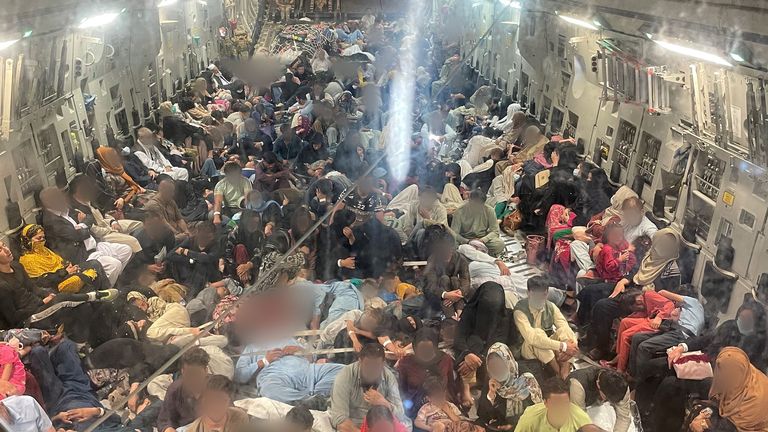‘There’s no time to waste’: Airbnb to temporarily house 20,000 Afghan refugees
Airbnb has said it will pay to temporarily house 20,000 Afghan refugees while they wait to find permanent accommodation around the world.
The online letting company did not specify how long it would host the refugees for, but said that the situation in Kabul was “one of the biggest humanitarian crises of our time”.
It said that the offer was effective immediately, and the company was already working with charities on the ground to help facilitate the transfer of people.
“As tens of thousands of Afghan refugees resettle around the world, where they stay will be the first chapter in their new lives,” said Brian Chesky, founder and chief executive of Airbnb.
“For these 20,000 refugees, my hope is that the Airbnb community will provide them with not only a safe place to rest and start over, but also a warm welcome home.”
Airbnb said that the cost would be paid by the company and Mr Chesky, who has a net worth of more than £8bn.
“I hope this inspires other business leaders to do the same,” said Mr Chesky. “There’s no time to waste.”
Charities and organisations around the UK have made calls for support to help refugees with essential needs such as clothing and baby equipment along with finding them new places to settle in the UK.
In a statement, Airbnb said it would closely collaborate with resettlement agencies and partners to “go where the need goes, and evolve this initiative and our support as necessary”.
For its part, the UK has said it will take up to 20,000 vulnerable Afghans over the coming years as part of a resettlement plan following the Taliban takeover of their country.
The government has faced criticism, including from some of its own backbenchers, that it is not moving quickly enough after it said it would take 5,000 in the programme’s first year.

